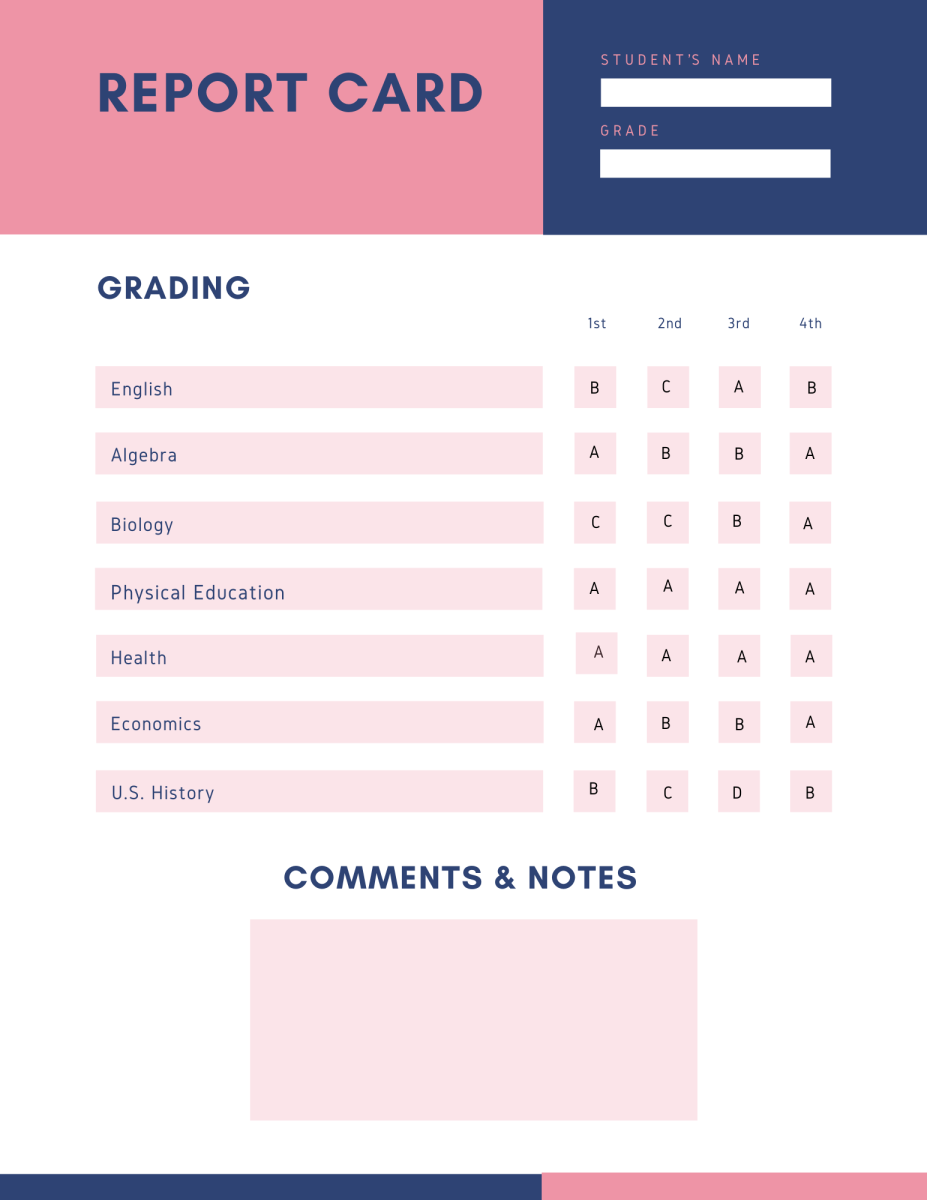As a motivated and diligent Cherry Hill High School East student, you finish your English assignment and check over your work. After breathing a sigh of relief, you reflect upon the difficult journey on which you embarked to ultimately complete your homework — you studied and reviewed your notes rigorously for several hours, and you ensured that you exceeded every requirement.
Striding confidently down the aisle with your shoulders back and head held high, you take steady and deliberate steps as you approach the teacher’s desk. You extend the assignment forward, your hand unwavering, with your body language fully composed. After all, you spent countless hours completing the assignment; there’s no need to feel apprehensive.
When the teacher returns the graded assignment to you, you’re thrilled — 95%, which is higher than your overall grade of 91%. But when you check your grade on Genesis Parent Portal, your eyes widen in disbelief. “This is so unfair! How did my average go down?” you may be thinking.
After spending hours perfecting the English assignment, feeling certain that it would boost — or at least maintain — your average grade of 91%, you confusedly and frustratedly wonder why this average has decreased to 89%.
Ironically, the very reason for this grade decrease in English class is because of math. Indeed, the Genesis weighted grading categories that differ by subject are flawed and unfair. In the above scenario, the student’s 91% overall English grade — with a 98% minor assessment grade, worth 45% of their total English grade, and an 84% major assessment grade, worth 50% of their total English grade — dropped to 89%.
The above decrease is due to the grade that they received on their most recent homework assignment from the minor assessments category (95%) being lower than their total category grade (98%). However, their grade should not have been negatively impacted, for the student’s 95% on the assignment is still higher than their overall grade of 91%. In other words, the current system of weighted categories on Genesis can result in a student’s grade changing minimally or possibly decreasing — even when that assignment’s grade is higher than a student’s average grade. Imagine converting a three-point shot in a basketball game and seeing your score go down because you missed a one-point free throw; that’s the equivalent of earning a good grade on a minor assessment instead of a major, and seeing your grade decrease because it brought the minor assessment total average down despite it being better than your aggregate overall grade.
This illogical system of grading extends beyond solely harming one’s grades due to overall and category grade averages. It also results in insignificant assignments holding a greater impact than they should due to an inconsistent distribution of assignments in each category, and it contributes to disparities in class difficulty based on how teachers of the same subject weigh assignments differently.
“In [one class], a minor assessment is worth 20% of your grade, but usually only one assignment is put in per marking period. If you mess up once in that category, it can drop your grade by a couple points, which winds up being just as [impactful] as a major test,” said Michael Tian (‘25).
Several classes tend to have few assignments in one category and numerous assignments in another, therefore increasing the importance of any graded work within the former category.
Additionally, the unjust system of Genesis weighted categories heightens the issue of class difficulty disparities within the same subject. Though every class of the same subject shares identically weighted categories, different teachers likely assign varying types of work. For example, some teachers may prefer assigning classwork and homework, while others may tend to frequently assign tests and projects. Grade inflation, therefore, emerges into an evident issue; students with classwork and homework-driven teachers will likely encounter an easier class experience compared to students in classes with teachers who prefer assigning tests and other major assignments.
“Instead of the current weighting system, in AP [Biology], even though there are multiple categories, all assignments are considered a part of one category, and [this] encourages students to try harder on homework and labs, also relieving the pressure of getting high A’s on every single test,” said Tian.
Similar to AP Biology, all subjects — and their respective classes — should forgo the current system of weighted categories on Genesis. Instead, they should grade assignments based on importance, with tests and projects receiving a greater value of points compared to homework or classwork assignments.
This would, in turn, prevents separate weighted categories from causing a student’s grade to decrease from an assignment whose grade winds up being higher than that student’s overall grade.
It also restrains relatively insignificant assignments formerly belonging to a category with minimal other assignments from influencing a student’s grade at the same rate as a major test or project, and it eliminates one of the countless factors contributing to class difficulty discrepancies.
While advocating against the cell phone and homeroom policies may currently remain at the top of the list of students’ grievances, reforming the Genesis weighted grading categories must emerge as our foremost priority if we hope to attain a more adequate and just system of grading for everyone.
“It’s definitely a system that needs some change, a system that needs some advocacy. I’m surprised people haven’t really joined together to…petition for a [different] system…[The current system] is just really flawed,” said Tian (’25).


